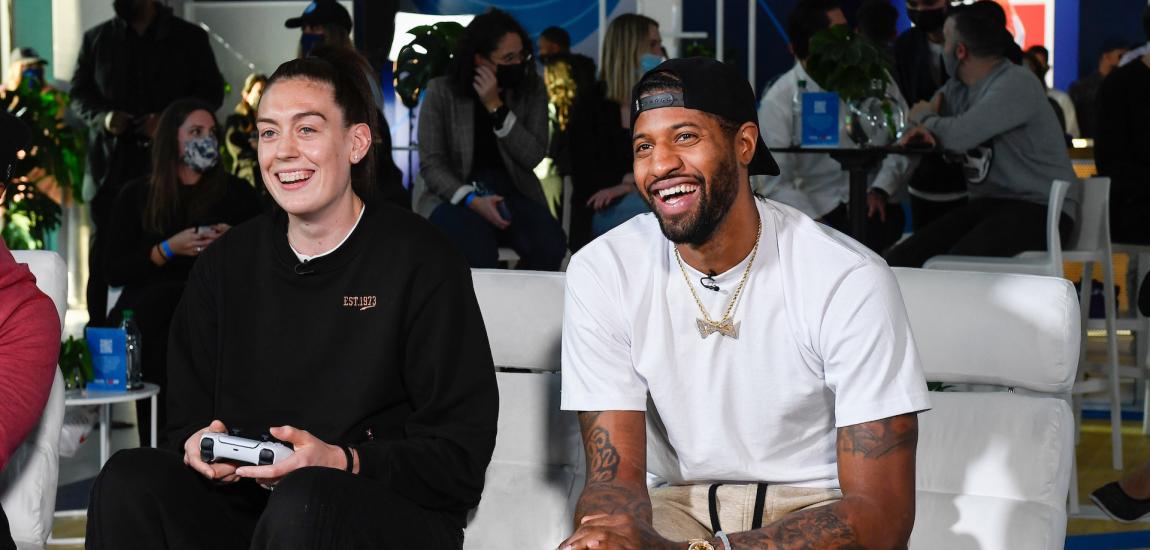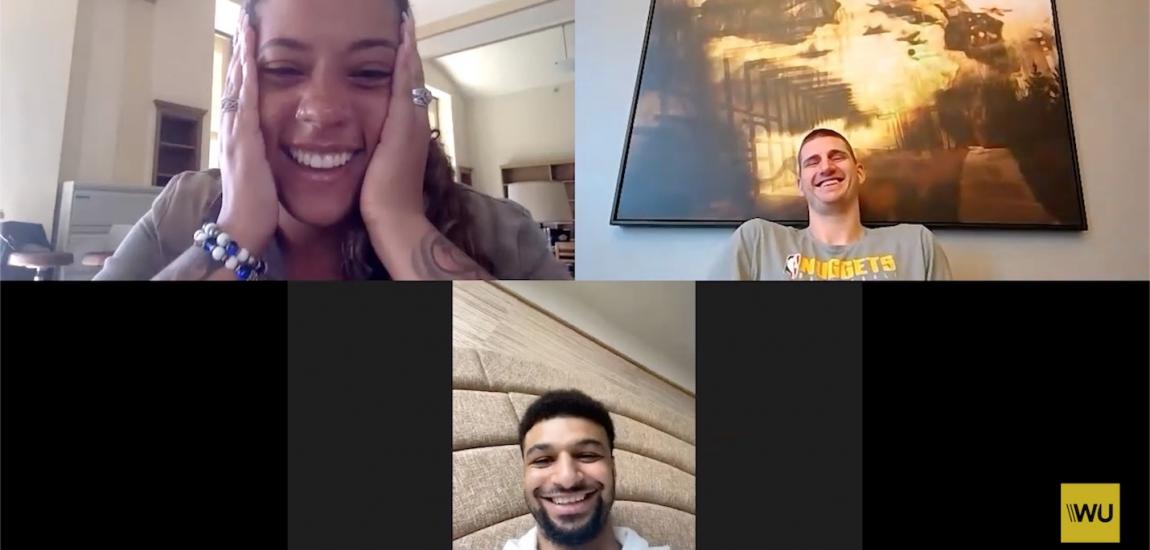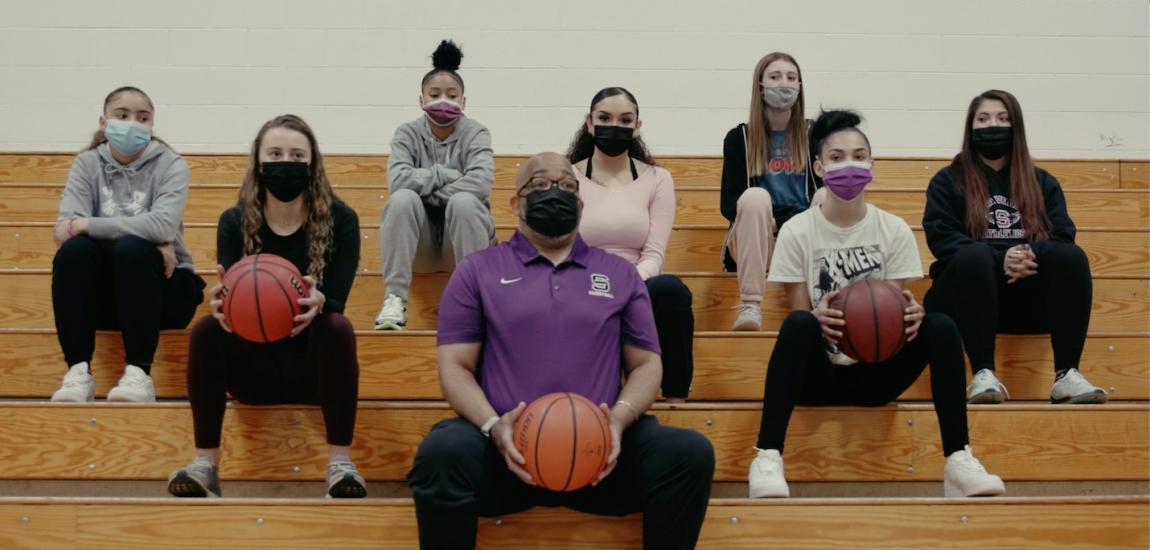In 1970, NBA legend Oscar Robertson filed a class action suit against the league along with 13 other players, including Celtics great John Havlicek and future U.S. Senator Bill Bradley. Similar to the case brought against MLB the same year by Curt Flood, which eventually reached the Supreme Court, Robertson's lawsuit challenged the NBA's limitation on player movement through the reserve clause. Oscar Robertson v. National Basketball Association was settled in 1976, paving the way for the "Oscar Robertson Rule" and free agency.
The NBA still has means to discourage unfettered player relocation: A restricted free agent's team can match any offer for him, and any team with a player's Bird Rights can offer a larger contract than any other suitors. That's why max-level stars rarely leave on their own accord: Even when they do, some will try to arrange sign-and-trade deals to lock in that larger contract.
But there have been exceptions over the years. And in the last couple seasons, the NBA has seen two of its generation's greatest players take the path less traveled, in search of a greater reward.
Top 12 Monumental NBA Free Agent Signings Slideshow

12. Gilbert Arenas, 2003
A second-round pick in 2001, the Golden State Warriors point guard becomes a restricted free agent after only two years in the league. He breaks out with averages of 18.3 points and 6.3 assists in 2002-03, and the Washington Wizards come calling with a six-year, $60 million offer sheet. Under league rules, teams over the salary cap can't match offers for former second-round picks, so Golden State has to let Arenas go. "Agent Zero" averages more than 25 points in three seasons for the Wizards, and his unwanted departure from Golden State leads to creation of the "Gilbert Arenas Rule," which would have allowed the Warriors to re-sign him. Arenas later inks a six-year, maximum salary deal with Washington that ended up being one of the worst contracts in NBA history. He plays with the Chinese Basketball Association's Shanghai Sharks last season.

11. Carlos Boozer, 2004
The Cleveland Cavaliers intend for Boozer to serve as LeBron James' running mate for years to come, but the big man makes other plans at the last minute. Another overachieving second-rounder, Boozer makes only $700,000 despite averaging a double-double in his second season. Cleveland general manager Jim Paxson infamously declines the Cavs' team option on Boozer for year three because of a handshake agreement that he would re-sign for six years and $41 million. But the Utah Jazz swoop in with a $68 million offer, and apparently that handshake isn't firm enough for Boozer to honor it. He has six productive seasons in Utah before leaving again in free agency, this time for Chicago. For a player who now has "amnesty clause" attached to his name more frequently than "All-Star," Boozer may have tectonically shifted the NBA landscape by ditching Cleveland.

10. Jamaal Wilkes, 1977
After three solid years with the Warriors, which include two nods to the All-NBA Defensive second team, Wilkes signs on with Kareem Abdul-Jabbar in Los Angeles. Wilkes helps the Lakers to three titles in eight years and averaged at least 20 points in three seasons. Wilkes is inducted into the Basketball Hall of Fame last year and has his No. 52 retired by the Lakers.

9. Lamar Odom, 2003
Supposedly the next Magic Johnson, Odom flashes potential but mostly disappointment with the Los Angeles Clippers in his first four seasons. With Elton Brand also a restricted free agent in the summer of 2003, Odom is not the Clippers' priority. But Pat Riley likes what he sees in the mercurial youngster and extends a six-year, $63 million offer sheet. Odom has his best season in Miami, averaging 17.1 points, 9.7 rebounds and 4.1 assists while playing alongside rookie Dwyane Wade. It makes him enticing trade bait for the Lakers, who send Shaquille O'Neal to the Heat, which paves the way for the Heat's first championship. After an uneven start to his second L.A. go-round, Odom becomes a standout sixth man for two title teams.

8. Gus Williams, 1977
Like Wilkes and Arenas, Williams starts his career with Golden State but departs shortly thereafter. Following an uneventful second year, Williams joins the Seattle SuperSonics and enjoys a breakout season. He nearly doubles his scoring average to 18.3 points and helpes Seattle reach the NBA Finals. Williams leads the team in regular season scoring at 19.2 points the following season, and Seattle wins it all in the playoffs. Williams has a productive '79-'80 season before sitting out '80-'81 in a contract dispute. He eventually re-signs with the Sonics.

7. Chauncey Billups, 2002
The midlevel exception is the maximum free agent contract option available to teams over the salary cap. It is traditionally the domain of overpaid role players (see last slide), but the Detroit Pistons strike gold with Billups. The third overall pick in 1997, Billups bounces around the league and mostly disappointed with his four teams. In Detroit, however, he finds an identity as the floor general and designated clutch-shot-maker for a lockdown defensive team. He wins Finals MVP in the Pistons' 2004 championship upset of the Lakers and rewrites the "bust" narrative that once defined him.

6. Steve Nash, 2004
Nash, 30, is deemed too old by Dallas Mavericks owner Mark Cuban for a long-term contract. The Phoenix Suns, who drafted Nash in 1996, take a gamble on the offensively gifted but defensively challenged point guard, signing him for six years and $65 million. The risky deal turns out to be a bargain, as Nash wins two MVP awards and redefines NBA offense. After falling short of a championship in eight seasons with Phoenix, he comes to the Lakers in a sign-and-trade. But in the reunion tour with Mike D'Antoni, he's finally started to play his age.

5. Moses Malone, 1982
As a two-time MVP, including the season before his free agency, a player of Malone's stature leaving his current team was unprecedented. The Philadelphia 76ers make a six-year, $13.2 million offer to the Malone. But before he could join Philly, several complications arise. The Sixers include some unusual clauses into Malone's offer sheet that they know the Houston Rockets cannot match, such as "$20,000 in each of the first three regular seasons in which the club he signs with does not rank in the top six among teams in attendance for road games." Finally, the dispute is resolved by the Sixers trading center Caldwell Jones and a first-round pick to Houston. Malone wins a regular season MVP and Finals MVP in his first year with Philadelphia. He only plays three more years with the Sixers but consistently exceeds averages of 20 points and 10 rebounds.

4. Shaquille O'Neal, 1996
With the Lakers stuck in unfamiliar territory as fringe playoff contenders, general manager Jerry West plots an ambitious overhaul in the summer of 1996. He starts by trading veteran center Vlade Divac for the rights to Charlotte Hornets draft pick Kobe Bryant and finishes by clinching the signature of O'Neal. Pitted in a duel for the 24-year-old behemoth with the Orlando Magic, the team that he led to the '95 Finals, the Lakers continue to shed salary as the bidding for O'Neal rises. When the dust settles, O'Neal signs a record-setting seven-year, $120 million contract with L.A. It becomes the richest deal in American team sports history and leads to the NBA setting restrictions on contract length in its next Collective Bargaining Agreement. Though O'Neal and Bryant's eight-year run is shorter than many hoped, it contains far more success than the rap and movie careers Shaq wants to kickstart in L.A.

3. LeBron James/Chris Bosh, 2010
After making NBA free agency as compelling as the playoffs and reducing respected reporters' sources to the standard of your grandma's sources, James and Bosh join Dwyane Wade in Miami. Technically acquired in sign-and-trades with the Cleveland Cavaliers and Toronto Raptors, respectively, James and Bosh make their intentions very clear about where they wanted to play. James hosts a one-hour television special on ESPN, and both partake in the pyrotechnic-fueled festivities welcoming the big three to South Beach. Although commissioner David Stern denies it, the latest collective bargaining agreement seems to strongly decentivize teams from stocking their teams with superstar talent like the Heat have.

2. LeBron James, 2014
He took his talents to South Beach, and then he took them back home. In 2014, James is just coming off of a loss to San Antonio in the NBA Finals. In four years in Miami, he reached the Finals every season, and brought home the title twice. But in 2014, he stuns the world and chooses to return to Cleveland, promising his home city a championship. Two years later, his promise is fulfilled.

1. Kevin Durant, Oklahoma City Thunder
When healthy, Durant has always been a deep playoff contender in Oklahoma City. But he's only been to the NBA Finals once, and his latest loss -- in seven games, to the Golden State Warriors -- was just the latest frustrating chapter for one of the game's biggest stars. Durant had promised he'd make a basketball decision rather than a money decision, and that seems to be the case: His two-year deal with the Warriors aligns him with three other All-NBA players from last season, forming one of the most intimidating rosters the league has ever seen.

Dishonorable Mention: Eddy Curry/Jerome James, 2005
For every successful free agent signing, there may be two or three that either flop completely or give general managers salary-cap headaches. The Knicks' lavishing almost $100 million on centers Curry and James is a symbol of the former category and of Isiah Thomas' troubled New York front office tenure. Curry comes in a sign-and-trade with Chicago for six years and $66 million, while James signs for five years and $30 million (through the midlevel exception) thanks to 11 solid playoff games with the Sonics. Both routinely out of shape, Curry and James fall out of favor quickly in New York. Nonetheless, Curry wins a championship ring in '12 with Miami.
More NBA:
-- 7 NBA Stars Missing Out On New Salary Cap
-- Stephen Curry Tucks In Unsuspecting Basketball Campers
-- LeBron James Takes NBA Title Trophy Out To Dinner
-
Related
 WNBA Star Breanna Stewart Talks NBA 2K22, Her Sneaker Game And Becoming A Mom
WNBA Star Breanna Stewart Talks NBA 2K22, Her Sneaker Game And Becoming A Mom -
Related
 Denver Educator's Inspiring Work With Black Youth Catches Attention Of Jamal Murray, Nikola Jokic
Denver Educator's Inspiring Work With Black Youth Catches Attention Of Jamal Murray, Nikola Jokic -
Related
 After Doctors Save Coach's Life From Covid, Players Pay It Forward -- And Earn Special Surprise
After Doctors Save Coach's Life From Covid, Players Pay It Forward -- And Earn Special Surprise -
Related
 'Space Jam: A New Legacy' Has Something For Everyone
'Space Jam: A New Legacy' Has Something For Everyone

